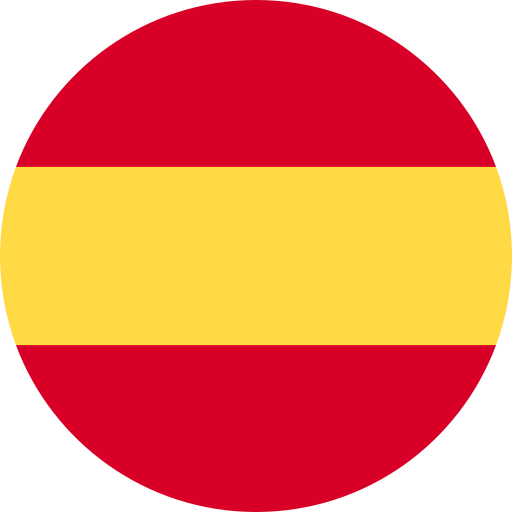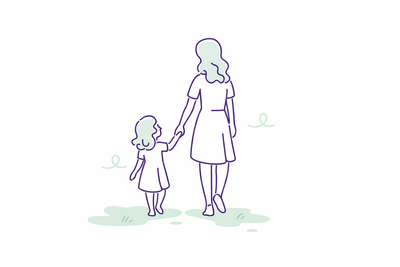
I sometimes share our struggles with Oliver and his bad days, I even wrote a post on the subject (you can find it here), but there’s something else I never shared with you, and it’s something that has helped me a lot understand Oliver.
About three years ago, looking for answers about Oliver’s recurrent and unpredictable bad days, Alex and I read a book “The Highly Sensitive Child” by Elaine Aron, and immediately a lightbulb went on in our heads. Even though I’m not one for labels, we instantly knew we have a highly sensitive child.
We also learnt that high sensitivity is a trait you’re born with, which helped us tremendously have more empathy towards Oliver, even (especially!) when we don’t understand him.
Looking back—because we can connect the dots only looking backwards—we realised that high sensitivity has been part of Oliver’s personality since he was born.
It’s hard to explain. Oliver has always had very strong emotions, that you might describe as “exaggerated”; he’s always been extremely sensitive to people’s feelings; he has a very strong sense of justice, and suffers deeply when justice is broken in his eyes. He thinks a lot—A LOT!—sometimes he’d just sit and think, while staring at what’s around him (I think that’s part of the reason why he loves traveling by train and bus). He gets easily overwhelmed and frustrated, and sometimes he spontaneously takes alone time; he feels emotions a lot deeper than anybody else I know. He observes thoroughly and notices every tiny detail—and usually remembers it. He’s overly sensitive to tastes and smells. The list goes on, ranging between feeling strongly about clothe labels or wet socks, to asking deep, thought-provoking questions.
They also say highly sensitive children are prone to becoming environmentalists, and, funnily enough, even though we’re not vegetarians, when he was three, Oliver stopped eating meat, because he doesn’t like to kill animals, and started feeling very strongly about climate injustice—I almost feel like he's teaching me, and not the other way around.
One day—the day I was inspired to write this—Oliver listened to a song on repeat for over an hour, sitting on the bed near the window and staring at the Bangkok landscape (he’s four!).
The song was from the latest Curious George movie, and is called Nothing seems right anymore. The main words are:
“Trying to be good, but somehow it all goes bad, feeling so sad, ‘cause nothing seems right anymore. Though you know the sun is shining, somehow the sky’s gone grey, like a big, dark cloud hovering, covering up a sunny day”.
Watching him there, deep in his thoughts, brought me to tears, because I know he recognises that sometimes he feels that way, too, and he’s probably trying to make sense of it in his 4-year-old head.
But also because I think at all the times we dismissed his feelings as “exaggerated” or we don’t respond to his emotions the way he needs us to—because we can’t relate, we don’t understand or simply our emotional plates are full for the day.
Every time that I can’t be there for him the way he needs me to, I think about that book, and I know I have to step up my game. I still fail a lot, but nowadays I also succeed a lot, especially when it comes to my attitude towards him.
On a bad day, you might see a child who is “misbehaved”, “disobedient” and “spoilt”, but I see his high sensitivity—a personality trait that I want to nurture as much as possible, while also trying to give him the tools to handle it.
Some people tell me I have to be stricter, but you see, it’s exactly the opposite. I have to put my ego aside, and be more gentle; I have to control MY behaviour first instead of focusing on his; I have to be his captain in an emotional storm, the person he can trust to take him to safety, a guide, a source of calm energy when his crocodile takes over his rational brain. I have to validate his emotions, and always try to respond to his rudeness with kindness. I have to remember my priorities: worrying about people's judgement during my child's crisis is not a priority, staying calm and in control of my own behaviour is.
I have to be the person that I’d like him to become.
And while this parenting approach might work best especially for highly sensitive people (children and adult alike), and even better for me and Oliver—because we're so different, and I'm still the one who has to compromise—I think it should it should the default in every parent/child relationship.
Because while I think it’s true what they say, that we, parents, get the children we need to evolve (IF we’re humble enough to learn from them), I don’t think it’s true that children always get the parents they need.
The parents all children need are the ones who are willing to change themselves for them, to evolve as people and human beings, and to be open and willing to understand that parents owe their children, not the other way around.
If we want a better world, a healthier future, and a next generation that is more pacific, more empathetic and more balanced, WE, parents, are the ones who need to create that generation. And the only way to start is to lead by example.
Be the change you want to see in the world, they say, and it's as true for the climate fight and a sustainable lifestyle as it is for gentle and respectful education.
PS. If you’re interested in the subject, I greatly enjoyed this podcast episode Highly Sensitive Parents/Children with Alane Freund by Susan Stiffelman, who’s always a source of inspiration.
































